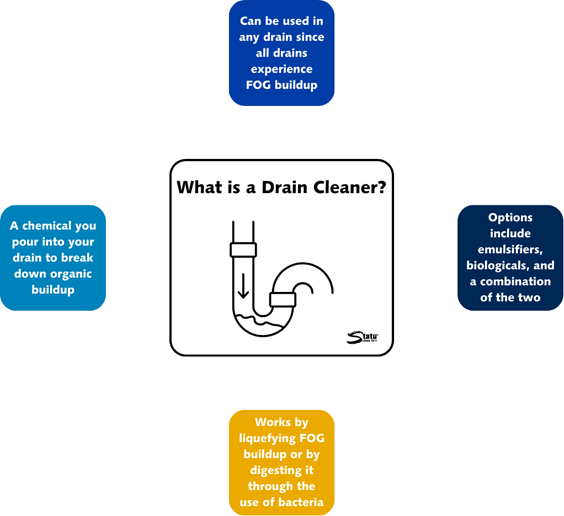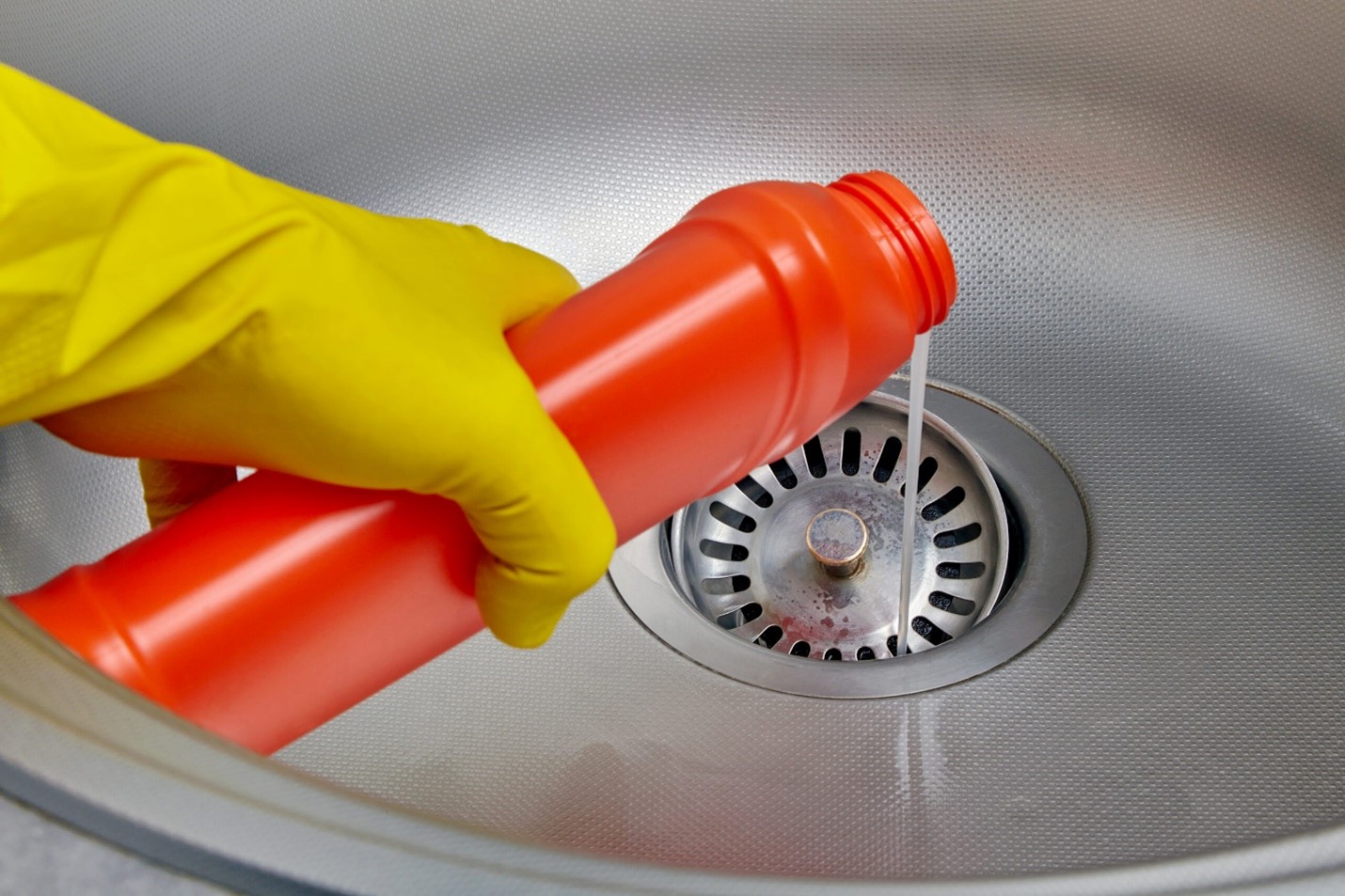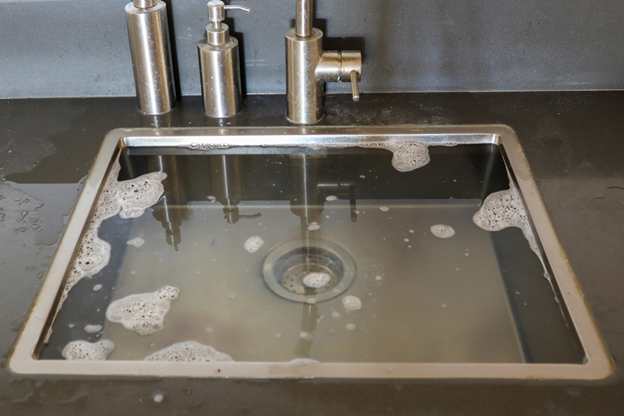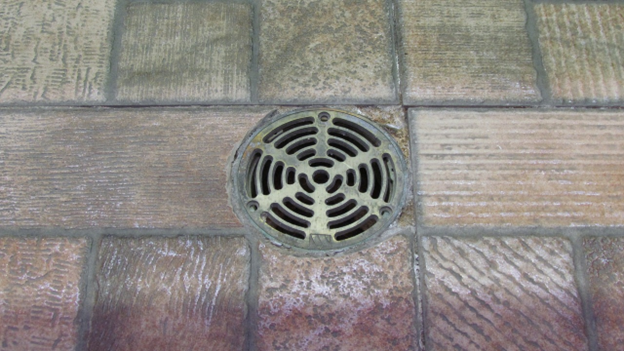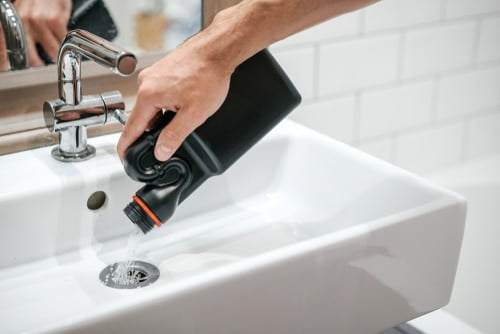How to Fix a Slow-Draining Sink with Commercial Drain Cleaners
How to Fix a Slow-Draining Sink with Commercial Drain Cleaners
Picture this: you’re a middle school cafeteria worker. Every day at lunch, your kitchen scrambles to get food out and dishes cleaned as fast as possible. However, this process is slowed significantly by the slow-draining sink—full of gray-brown water and floating chunks of mystery food, flowing down the drain with a reluctant gurgle. This is a consistent pattern—a headache for everyone on staff—and the last thing you want is for it to worsen, but how do you fix a slow drain that’s used so frequently?
At State Chemical, we manufacture and distribute chemical solutions for various problems, including drain problems. When you’re dealing with drain issues, you just want the quickest, most effective solution. In this article, we’ll help you determine your first step toward a resolution.
To teach you how to fix your slow drains and prevent future clogs, we will explain what a drain cleaner is, when you should and shouldn’t use it, how it works, and how to choose the right one. After reading, you’ll know if drain cleaners are the right solution for you—and which is best for you if so.
What is a Commercial Drain Cleaner?
When someone describes drain cleaners, they may be referring to one of two different types of products: drain cleaners and drain openers.
Drain cleaners are one of your primary options to fix slow drains and prevent drain clogs. A drain cleaner is a chemical that you pour directly into your drain to break down fats, oils, and greases (FOGs) and other organic buildup in your pipes. Meanwhile, drain openers are reactive treatment to clogs.
Every drain experiences FOG buildup. Even if you only use your drain to wash your hands, soap scum and body oils will enter the drain and cling to the sides of your pipes, congealing with previous buildup. When this happens frequently enough, your sink will drain more slowly and will eventually clog.
With a drain cleaner, this buildup will be liquefied or digested so that it can easily pass through the drain. Because drain cleaners do this as FOGs build in the first place, they can prevent clogs from forming in the first place.
In commercial settings, drain cleaners can either be poured down the drain by hand or set up to an automated drain pump. It all depends on your personal preference.
Commercial Drain Cleaner vs. Commercial Drain Opener
When we discuss what a drain cleaner is, we must also discuss what a drain cleaner is not.
A drain cleaner is intended for regular use to control FOG buildup in drains. It is not for emergency clogs, but rather as preventative maintenance or to preventatively combat persistent problems.
Meanwhile, a drain opener should only be used to clear a clogged drain. A drain opener is considered reactive maintenance and should not be used regularly, as it could damage pipes if overused.
If you need a fast chemical to unclog your drain, use a drain opener. If you want to prevent future drain problems and break down FOGs to speed up your drains, use a drain cleaner.
When Should You Use a Commercial Drain Cleaner?
This being said, any drain can benefit from using a drain cleaner because all drains have the potential to become clogged. Drain cleaners prevent FOG buildup before it starts, so even if your drain isn’t showing obvious signs of problems, drain cleaners can still help.
However, drain cleaners will most immediately benefit you if you’re experiencing slow drains, backups, drain flies, or drain odors (unless they are connected to dry drain, which requires a different treatment). Biological drain cleaners will start reducing these issues within 24 hours, while emulsifying drain cleaners will begin to work within 15 minutes.
It may seem unnecessary to invest in drain cleaners when you don’t see evidence of problems; after all, if you don’t see any issues now, why should you believe there will be one down the line? And we get it—you don’t want to feel like you’re just throwing your money away.
But think about drain cleaners like changing the oil in your car. If you do the required maintenance at the right time, your car can avoid problems down the road. Similarly, if you use drain cleaners regularly, you won’t have to deal with clogs or slow drains later on. For this reason, drain cleaners are a smart choice for virtually every situation.
When Should You Not Use a Commercial Drain Cleaner?
However, there are times when it just doesn't make sense to regularly use a drain cleaner.
For example, if you have an employee-only restroom in the back of your comic book store, the sink won’t be used as frequently as the eight sinks in a single sports arena bathroom. In this case, it would still be beneficial to pour a drain cleaner down the sink once a month as preventative maintenance, but anything more might be overkill.
Additionally, if you have a drain that is used very infrequently, using a drain cleaner probably wouldn’t make sense because the pipes won’t have much FOG buildup. Instead, you are more likely in need of solutions or preventative maintenance for dry drain. If you have an infrequently used drain with odor problems, a dry drain product is a more fitting solution for you than a drain cleaner.
Otherwise, drain cleaners usually make sense. If you aren’t interested in a drain cleaner, you can also use drain openers or other drain-unclogging methods down the line. However, keep in mind that emergency maintenance is usually more costly than preventative measures.
How Does a Commercial Drain Cleaner Work?
Drain cleaners work in one of two ways: by liquefying FOG buildup or by digesting it through the use of bacteria. Both methods break down the material so that it can easily flow through the pipes with the water.
Different drain cleaners must be used at different frequencies—depending heavily on your situation. For example, if your drain sees a very minor amount of FOGs, you might use a drain cleaner once a month. Meanwhile, if you’re running a restaurant that sends cooking oil and food scraps down the drain every day, you’ll probably use an automated drain pump so that FOGs are cleared out on a more consistent basis.
What a drain cleaner looks like in practice for you will vary based on your facility’s situation. A drain cleaning company can help you determine the right process for your needs.
Enzyme Drain Cleaner vs. Emulsifying Drain Cleaner
Picking the right drain cleaner for you means choosing between emulsifying and bacterial drain cleaners.
As previously stated, emulsifiers liquefy buildup while bacterial cleaners digest buildup into water and air. Emulsifiers are often preferred because they work more quickly than biological products, which is especially useful in cases of severe buildup. However, they may also just move buildup further down the drain line, as the FOGs can eventually resolidify. This can cause more challenging issues deeper in the pipes or even for the larger city sewer system. For this reason, emulsifiers tend to be heavily regulated.
Meanwhile, bacterial drain cleaners are often preferred because they develop a colony of bacteria in your drain. Even if you stop using the product, the colony will continue to grow as long as it has a food source (FOG buildup) and oxygen. In the long term, bacterial drain cleaners are an investment in the continued well-being of your drain, even though they initially don’t work quite as quickly.
It’s important to note that these two categories are not mutually exclusive, and many products will contain bacteria or enzymes and emulsifying ingredients. Read the label to ensure that you understand your product’s ingredients.
Is Preventative Drain Maintenance Worth It?
Drain problems are a headache to deal with—especially since they often form right under your nose. Using a drain cleaner can be a good way to stop mild drain problems and prevent larger ones, but still, you may wonder if they’re really worth it. To learn more about the cost of preventative drain maintenance as compared to emergency maintenance, read this article.

